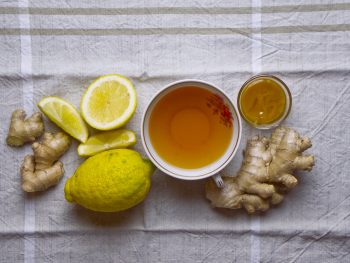I adore honey, and especially the benefits of honey! I also love finding new kinds and trying them out. I have recently received a bounty from a local store and it made my heart sing!! It took all my will not to overload on sugar and try them all on the same day. The link for the store is at the bottom of the text, I am not affiliated with them in any way, but I genuinely love their products and service!
Why do I love honey so much?
First, it is delicious, and a perfect sweetener, but mostly I love it because it is so natural and has powerful properties. It is a wonderful addition to any anti-inflammatory diet and has proven benefits for autoimmune disease, from ulcers and colitis to lupus and beyond, as a topical application in wound healing, antioxidant, antibacterial and anti-fungal, and this list goes on.
After a recent bout of colitis, I have taken Manuka honey daily, as this is one of the most researched kinds of honey out there, with proven benefits for gut issues of all kinds, but specifically for ulcers and colitis, and I felt a definite difference. This has inspired me to try out all kinds of honey and reap the benefits!
Before we dive into some of those benefits, I’d like to point out that it is important to source high-quality honey that is raw and unpasteurized. The processing of honey destroys some of the highly beneficial properties of honey and it is worth time and investment to get honey as nature intended.

The benefits of Honey
Honey is anti-inflammatory and immune-modulatory
Chronic Inflammation inhibits healing by damaging tissues, and according to current research, honey reduces inflammation response in clinical trials because of its phenolic content.
Since inflammation is at the core of autoimmune illness(s), honey is an impressive addition.
It is an antioxidant – This contributes to gut healing and anti-inflammatory effects. The high concentration of phenolic compounds like flavonoids can reduce oxidative damage, which people with autoimmune conditions are more prone to because of chronic inflammation.
Aids in wound healing
Manuka honey specifically is used in medical settings to treat wounds, since it has effective antibacterial properties and aids in tissue regeneration. However, keep in mind, this is done in a hospital setting with medical-grade honey. Consult with a doctor before administering anything to open wounds at home.
Antibacterial and anti-fungal properties
Research has shown honey can kill unwanted bacteria and fungus, depending on the type of honey, but it had apparent results.
Honey is full of phytonutrients
Phytonutrients are plant compounds that help protect the plants from harm, and they are what gives honey its antioxidant properties and the antibacterial/anti-fungal power
Help for digestive issues
This is the number one reason I take honey daily. It soothes an upset stomach, has the power to stop diarrhea or help constipation and has been thoroughly researched and proven as an effective treatment for H. Pylori, the bacteria that causes stomach ulcers. It has also been helpful for other stomach issues, such as IBS, SIBO, Colitis and general stomach upset.
Honey is a prebiotic
Honey has no fibre, but it contains oligosaccharides that promote the growth of lactobacilli and bifidobacteria and act as a prebiotic feeding the good bacteria in our gut.
Honey also has enzymes that help our body digest food and it helps keep bowel habits regular.
If all this isn’t enough and you want more of that sweet power, look no further. Bees have more to offer. Honey with the addition of other bee products, propolis and royal jelly has even more to offer.
Both these substances have high amounts of polyphenols and boost the anti-inflammatory, antibacterial/fungal properties of honey, and you can consume it on its own or with honey.
Propolis has over 300 beneficial compounds and is excellent in fighting disease and helps with recovering from infections and speeds healing time. It is used as an effective treatment of colds and flu and herpes. Research has confirmed that the administration of propolis to cold sores not only reduced the amount of herpes virus in the body but also protected the body against future cold sore outbreaks. If you get cold sores often, consider adding propolis to your regiment.
Royal jelly has many applications, most researched are for improved brain function, improved memory and antioxidant activity. There was even a small but significant study showing that royal jelly positively affected children with SLE (systemic lupus erythematosus) and significantly reduced disease activity over three months upon daily administration of royal jelly.
All these are awesome benefits, and a great addition to any diet, but it’s only the tip of the iceberg. Honey has been used and praised since ancient times, and the research is only beginning on the potential of this liquid gold treasure. It is worth swapping your sweetener for honey.
*Keep in mind it is still high in sugar and is not a magic cure. It is best used as part of a total diet and lifestyle regime to manage chronic illness.
Link to purchase honey from a local Toronto store
Stay nourished,
Sanja










 Self Care Burnout
Self Care Burnout